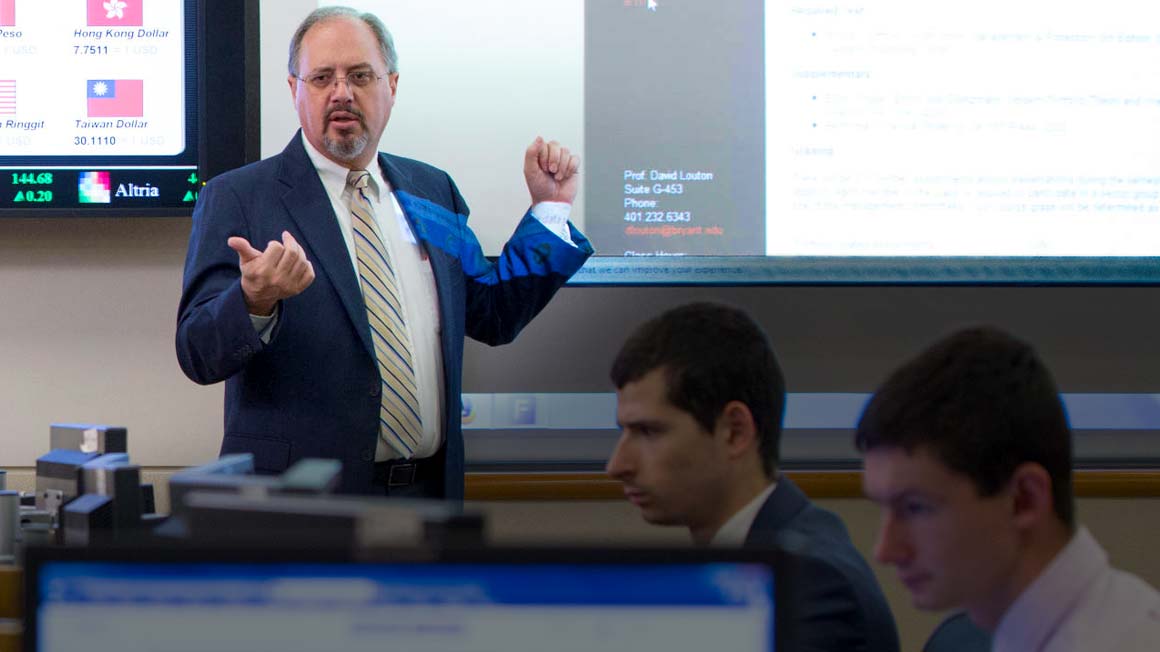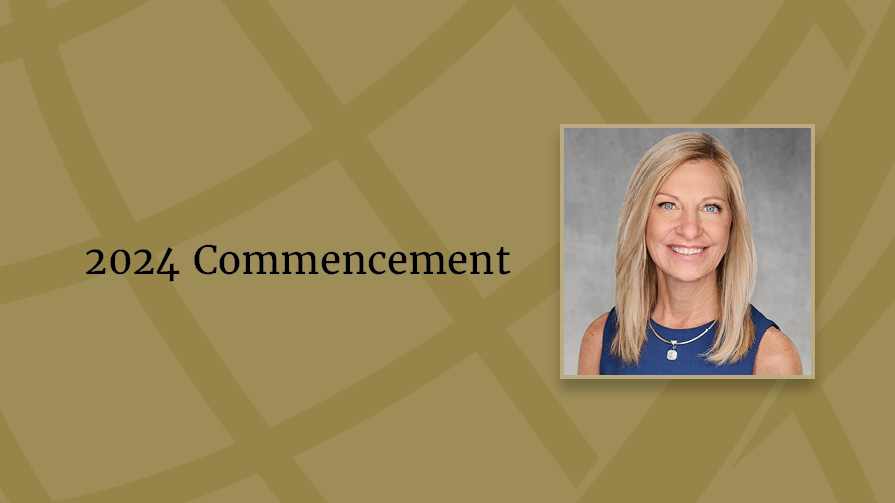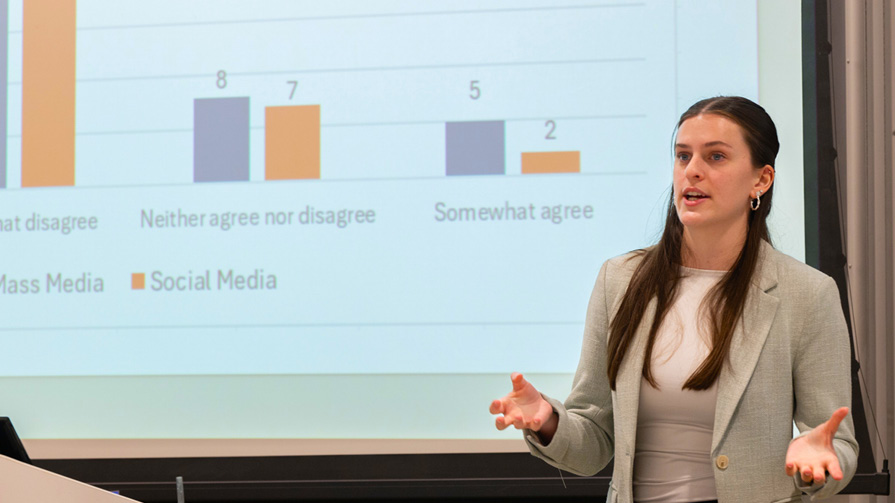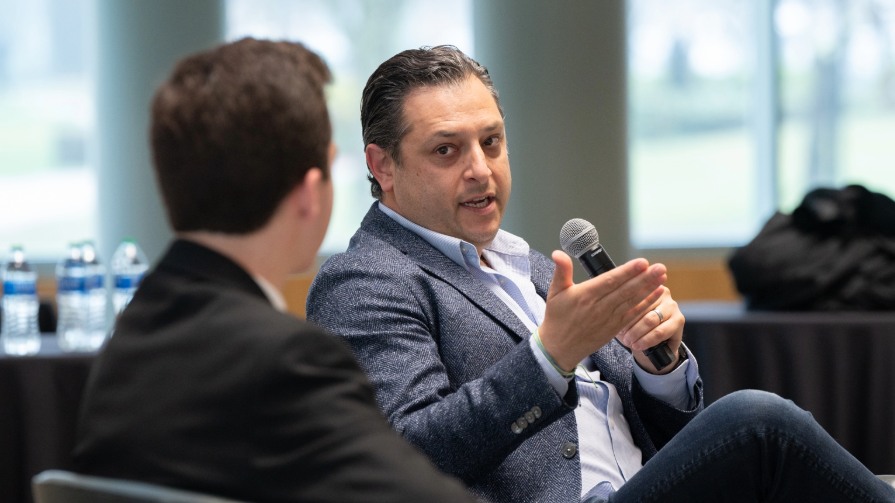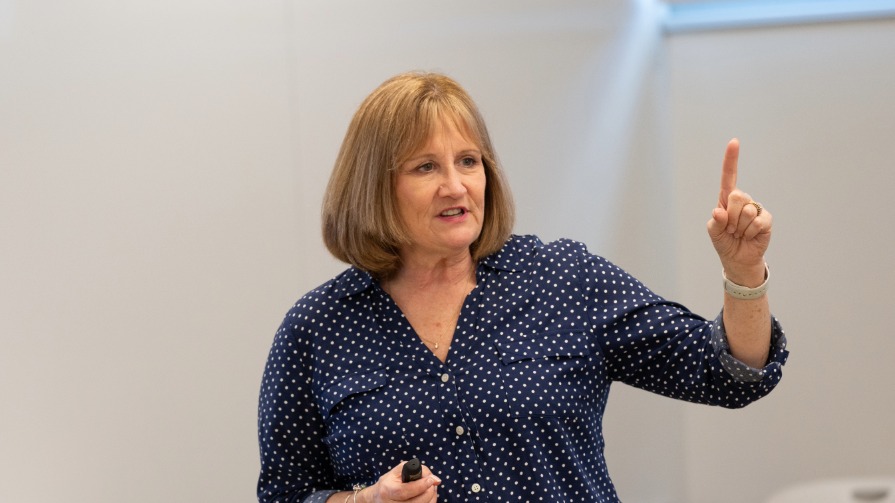SMITHFIELD, RI - When it comes to investing for the future, the experts say, “start early,” and just about everyone agrees. Still, many delay, often because they simply don’t know how or where to start. Bryant Finance Professor Dave Louton, a sought-after expert in finance and investing, has agreed to answer some questions commonly asked by new investors.
What are the biggest obstacles for people who would like to start investing, but haven’t yet? Is it the belief they don’t have enough money to begin?
It usually has less to do with not having enough money to open a brokerage account and more to do with not knowing where to start, not understanding investment risk very well and being afraid of losing the money that they have. Of course, this is case-dependent and some do delay opening an investment account because they don’t believe that they have enough money to do so. Regardless of what causes an individual to delay, it is a dangerous trap. The secret to long-term financial security is to start saving as early as possible. The key is to be consistent. Even a small but regular contribution to savings, invested in something that produces a reasonable return, can make a huge difference in the long run.
Is there a minimum financial requirement to begin investing? Where should one go to begin? A brokerage firm? A financial advisor? Online or in person?
Retail brokerage firms have been moving away from specifying a minimum dollar amount for new accounts. In addition, the major online brokerage firms recently stopped charging commissions, so scale is not really a barrier in the way that it once was. For very small-scale investing, there are firms like Acorns.com that offer a limited menu of mutual funds ranging from cautious to aggressive. This can help to simplify the choices faced by new investors. The major online discount brokerage firms like Schwab, TDAmeritrade and their like, all provide a nice suite of resources that are helpful in researching potential investments and tracking portfolio performance. Choosing the right brokerage firm for you is ultimately about weighing up the costs and benefits.
After opening an account, the next priority is to be sure to maintain a sufficiently diversified set of holdings. Not doing so would expose the portfolio to unnecessary and ultimately unrewarded risks. Although diversification is vital, at small scale the only practical way to achieve it is by holding broadly diversified exchange traded funds (also called ETFs) or mutual funds. For younger investors this could be as simple as buying some shares of the Standard and Poors 500 ETF (symbol SPY). It may be appropriate for older investors to hold a diversified mix of stocks and bonds and there are many balanced mutual funds that provide access to this kind of a portfolio at a reasonable price.
What are the factors investors should consider before they start investing?
The first question should be: “Do I have any short-term consumer debt?” Credit cards and installment loan balances represent commitments to pay fixed amounts of money on or before specific dates. Money needed to pay these obligations should not be exposed to investment risk. The next question is: “Are there tax-sheltered investment opportunities like IRAs and 401K plans available to me?” If there are, and you are not already taking full advantage of them, then a substantial proportion of your investment dollars should be directed toward tax-sheltered investments. However, one of the few downsides of tax-sheltered accounts is that money cannot be withdrawn without tax penalties until later in life. So, it is appropriate to evaluate short- and medium-term liquidity needs very closely before determining the proportion of your investment dollars that can safely be directed to tax sheltered accounts.
Where to begin with constructing a portfolio, particularly with a smaller or limited investment?
I recommend initially focusing on passive investments, like the Standard and Poors 500 ETF mentioned earlier, or some of the life-cycle funds offered by big financial firms like Fidelity and Putnam. These firms and some others offer funds tailored to meet the needs of investors with specific retirement horizons. Life-cycle funds designed for younger investors with more distant retirement dates, include a more aggressive mix of investments, but are still well diversified. As time goes on and the investor cohort for a particular fund ages, the asset mix is adjusted to gradually dial down the investment risk.
If you are more risk-tolerant and decide to invest in actively managed funds, then diversification across funds matters. Although each fund may be well diversified from an asset mix point of view, spreading investments across five to seven funds will help to diversify manager risk. That is the risk that a particular manager’s view of the investment landscape may be flawed in some way and therefore likely to lead to poor investment strategy decisions and losses for investors.1
What are the costs associated with investing? How to know if one is paying too much? How to avoid mistakes?
Research has shown that mutual funds with lower fees and longer manager tenure tend to perform better. Managers of such funds tend to adopt longer term investment strategies and to consider their trades with a longer investment horizon in mind. Normally this means fewer trades and thus lower trading costs. Often it also means more resilient and sustainable investment strategies, which may account for managers remaining in their jobs longer. If you want to include an active investing component in your portfolio, look for funds with low expense ratios and managers that have been there for a long time. These funds are the best of the active investing spectrum for small scale investors.
_______________________________________________
Dave Louton, Ph.D., is a Professor of Finance at Bryant University. His teaching and research have focused on investment strategy, financial markets technology and innovation, asset allocation, mutual funds, options market models, and investor behavior. More recently his research focus has shifted to applications of computational linguistics and machine learning models to investment analysis. His recent research has appeared in publications such as the Journal of Investing, the Journal of Finance and Data Science, and Intelligent Systems in Accounting, Finance and Management. He’s also provided expertise and commentary for such top-tier media outlets as the Wall Street Journal, Forbes, U.S. News & World Report, and The Hill.
